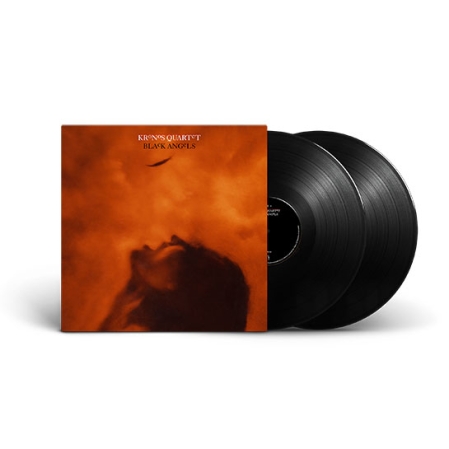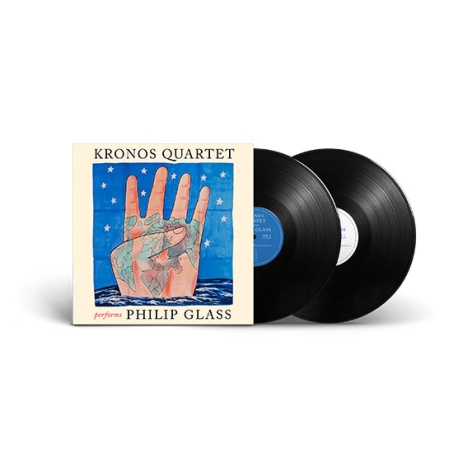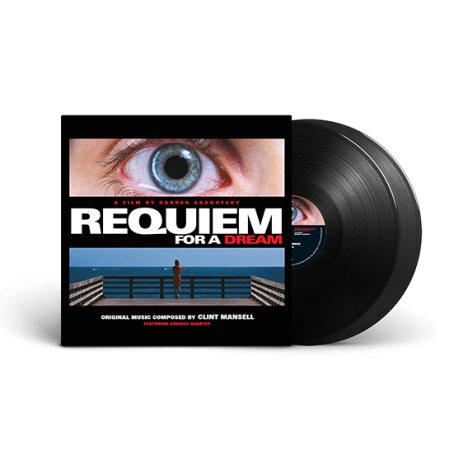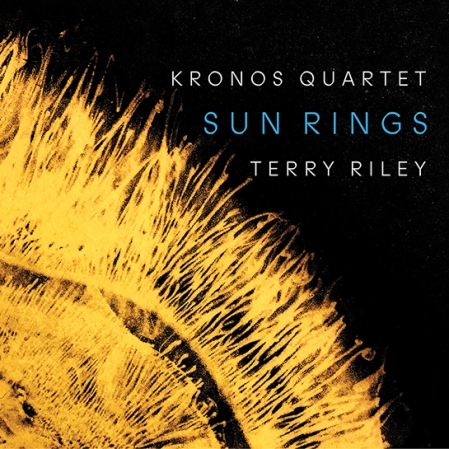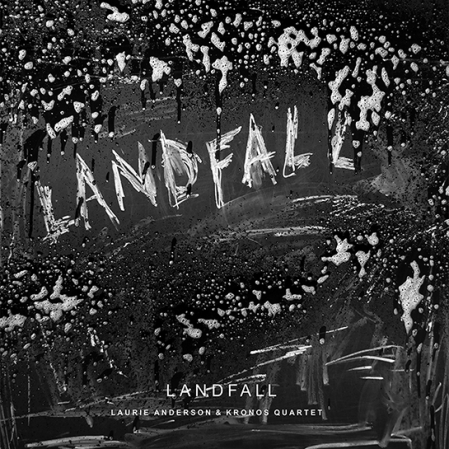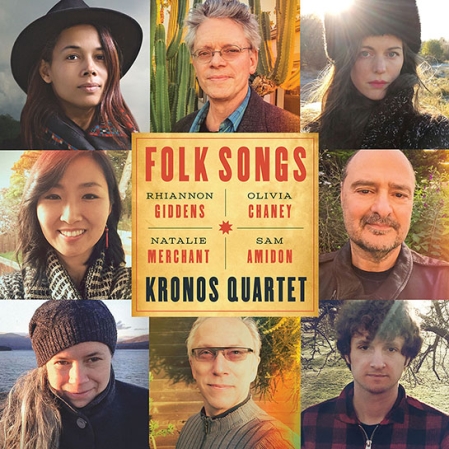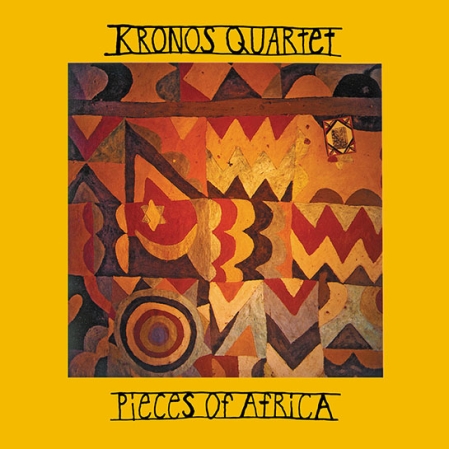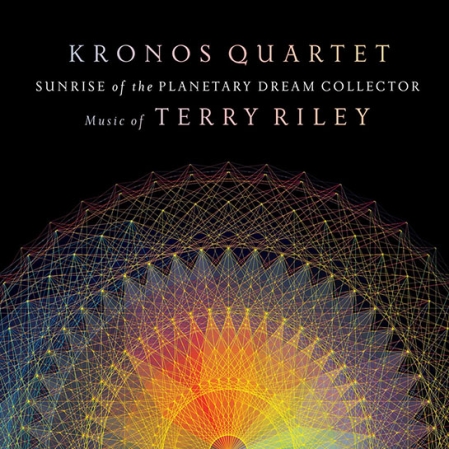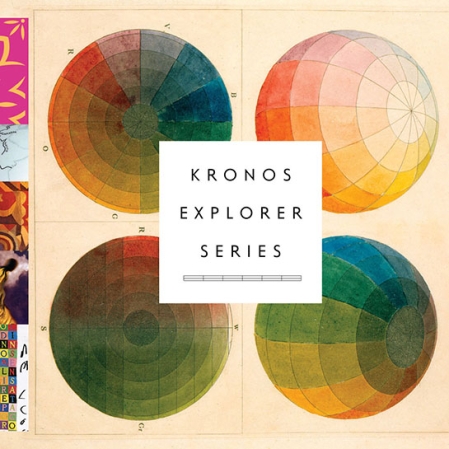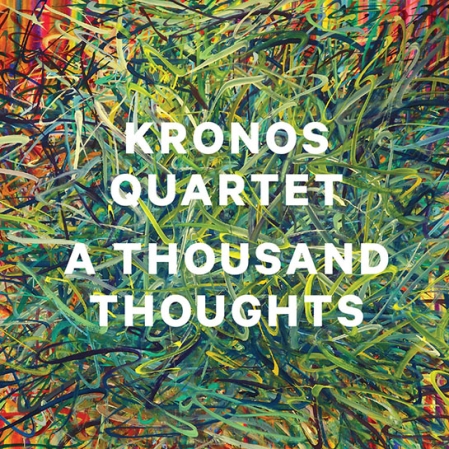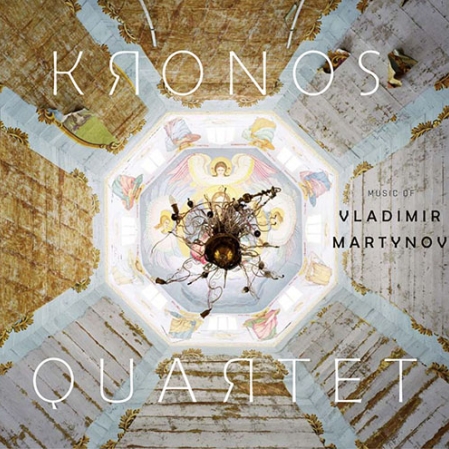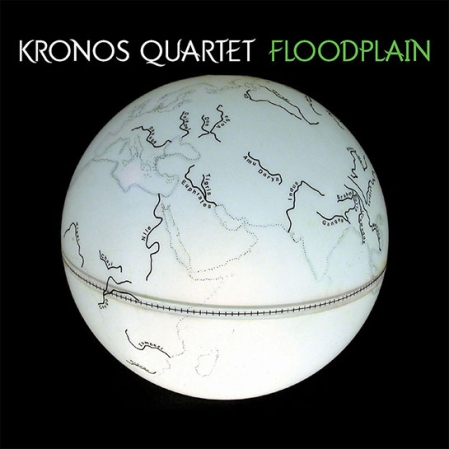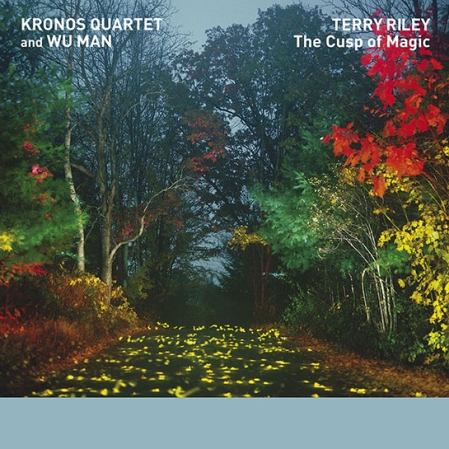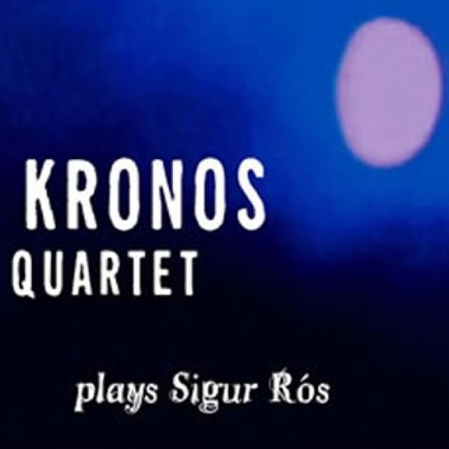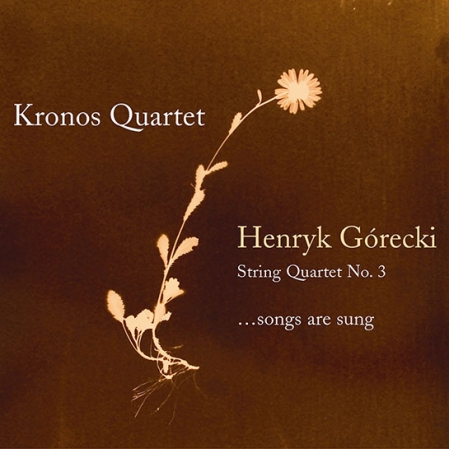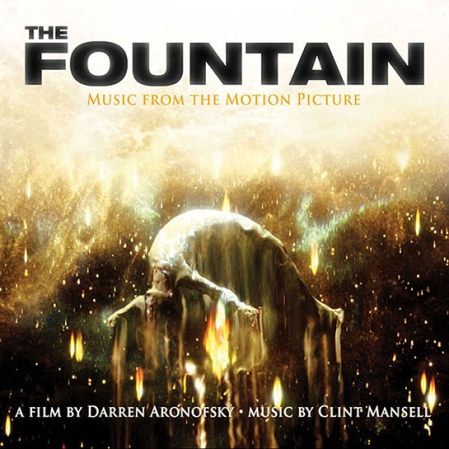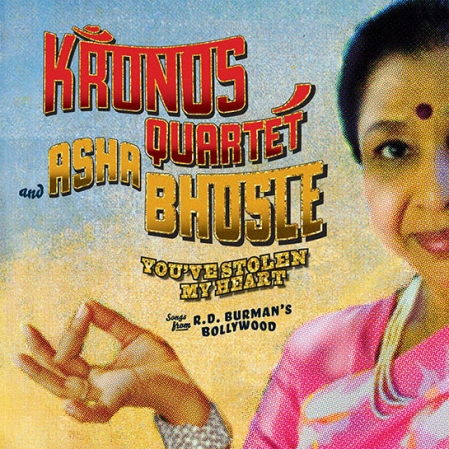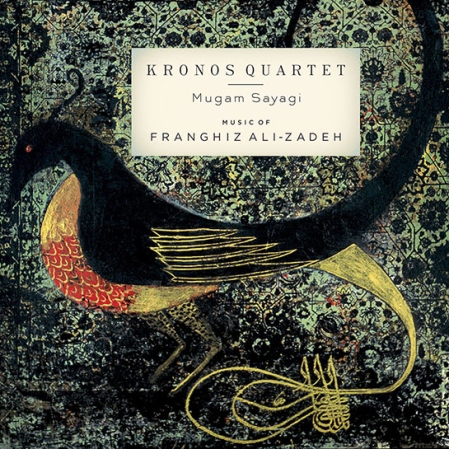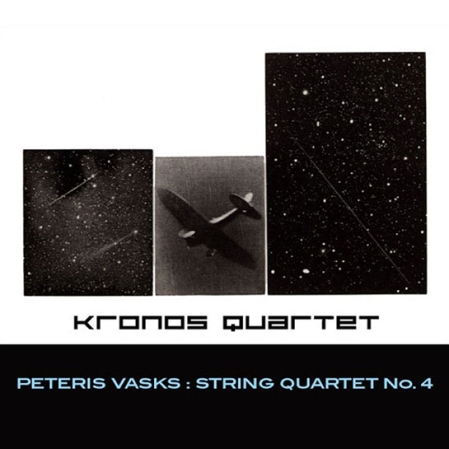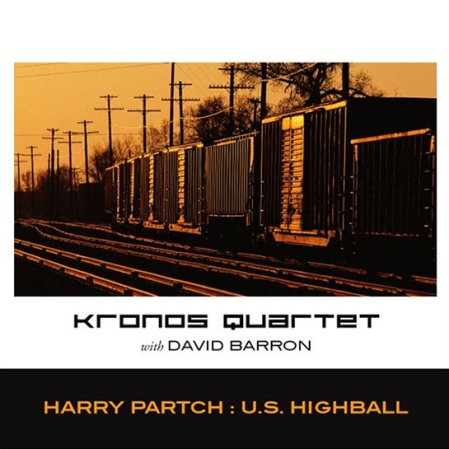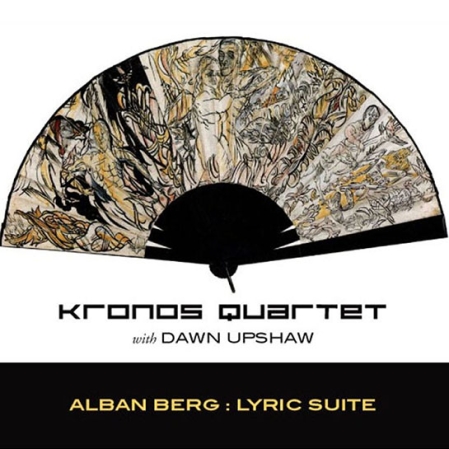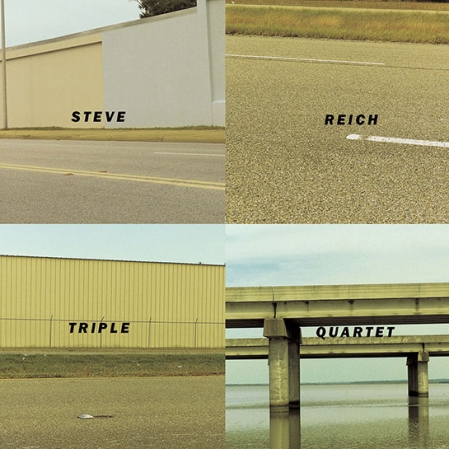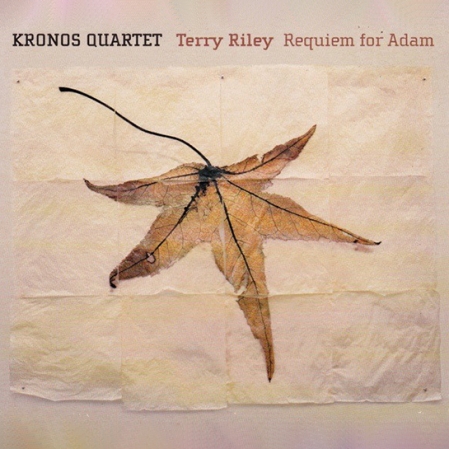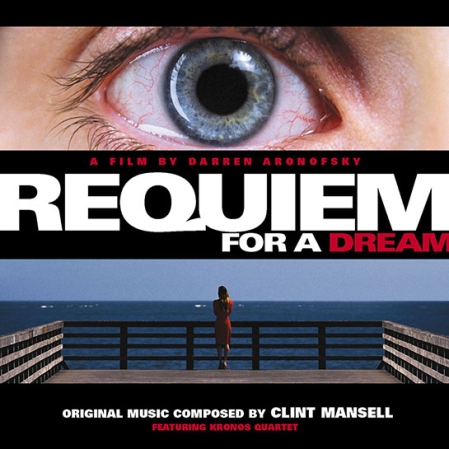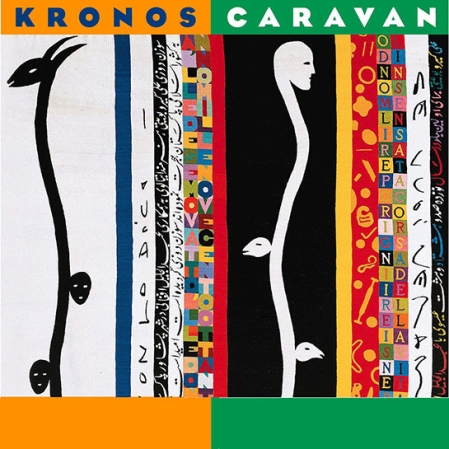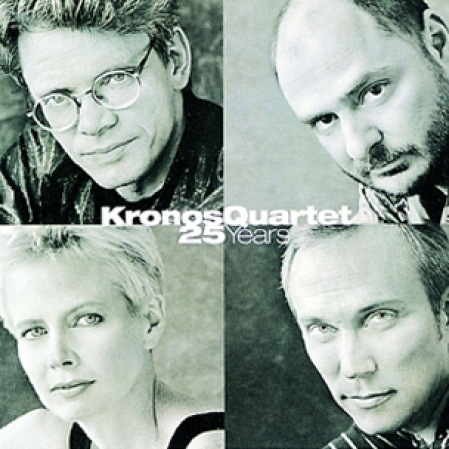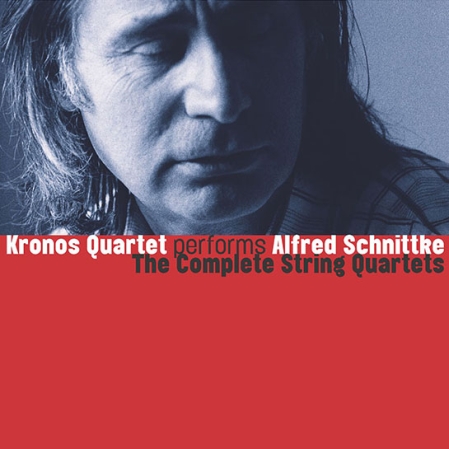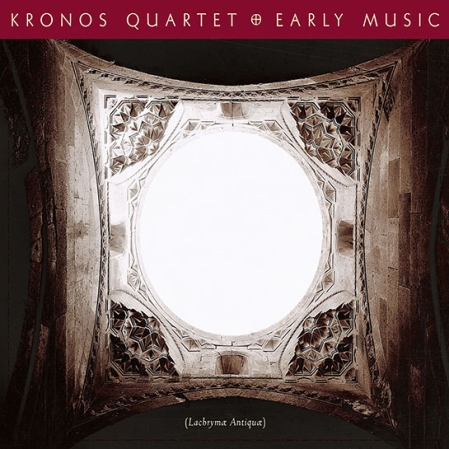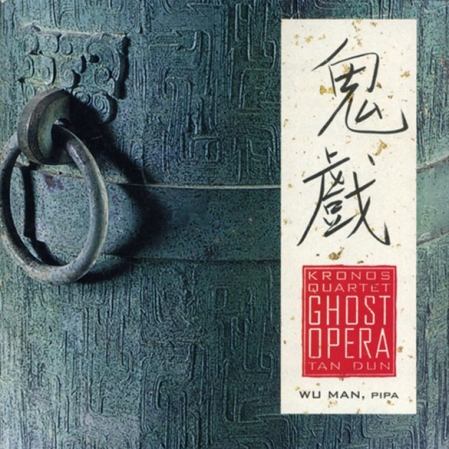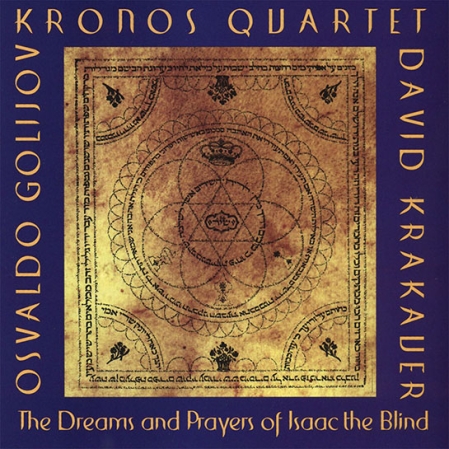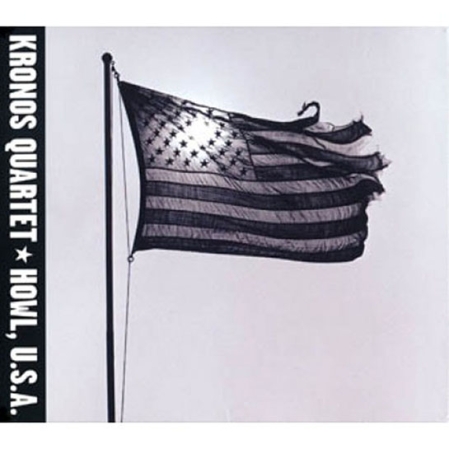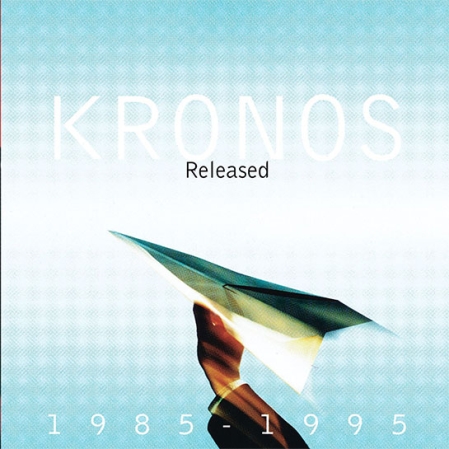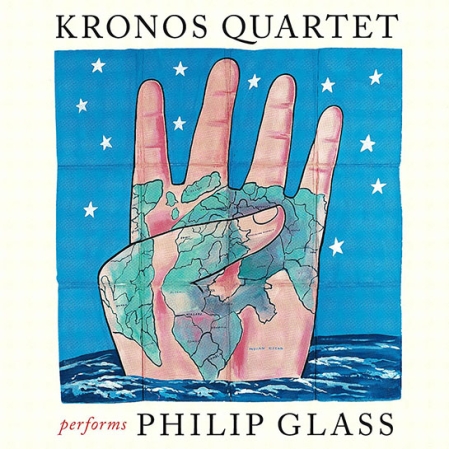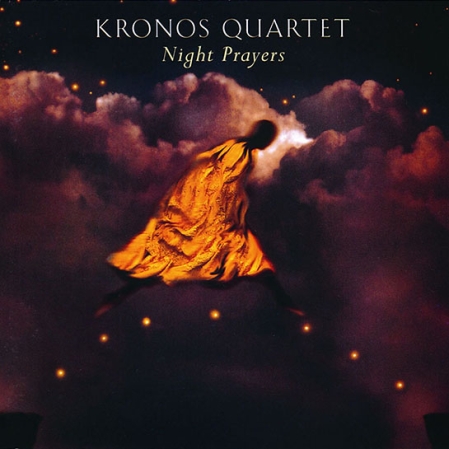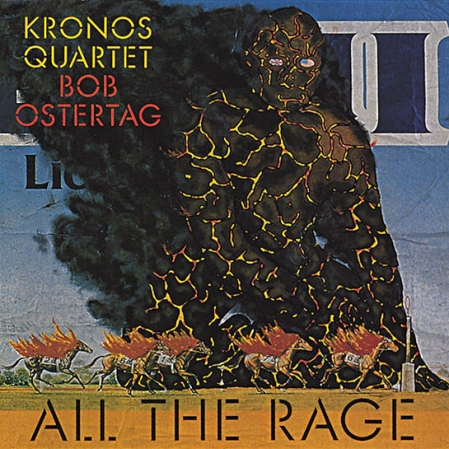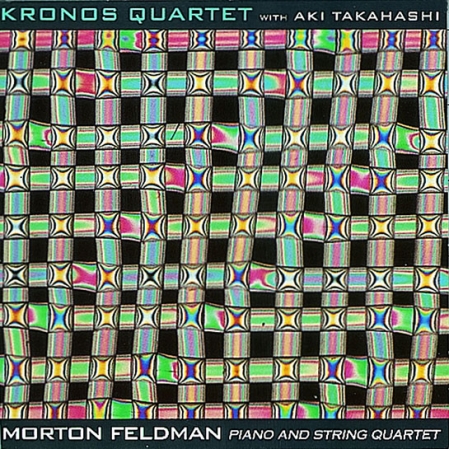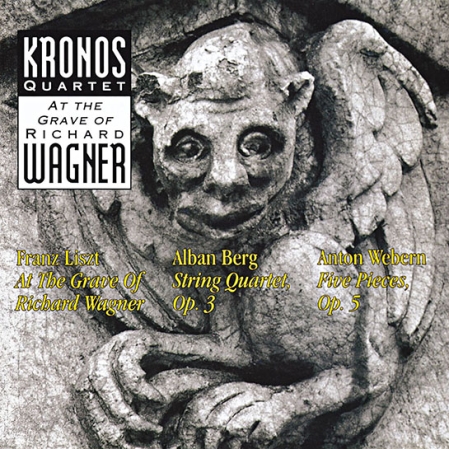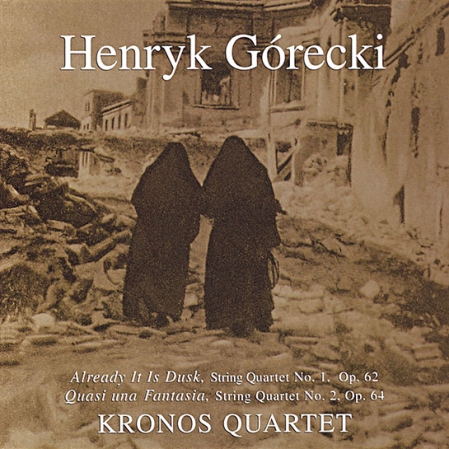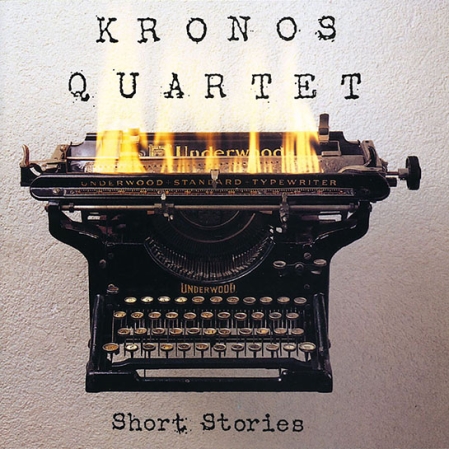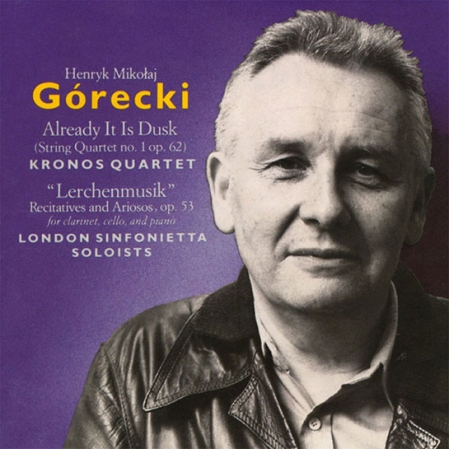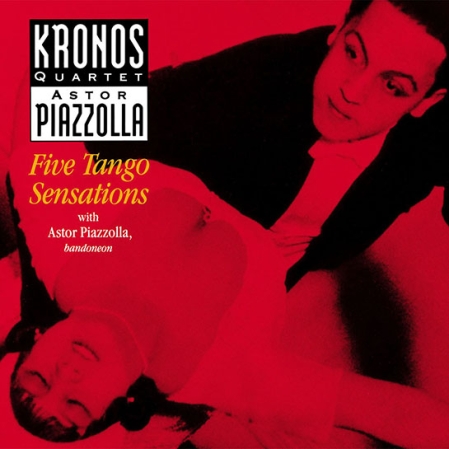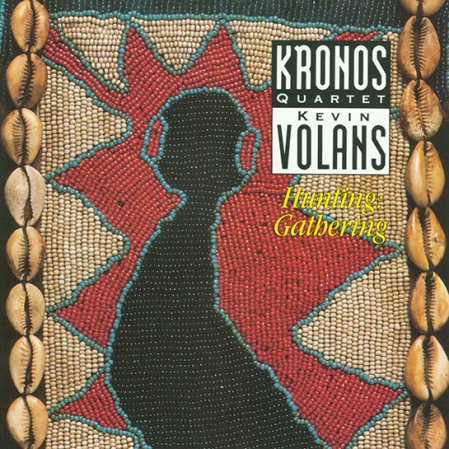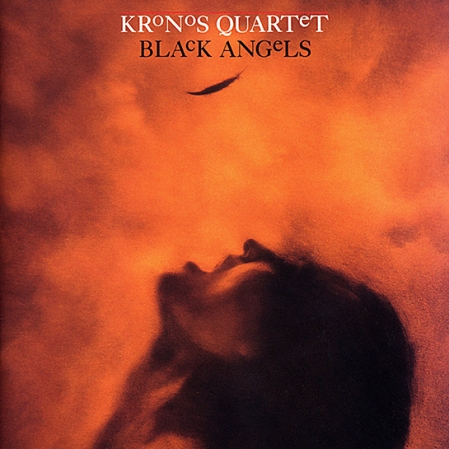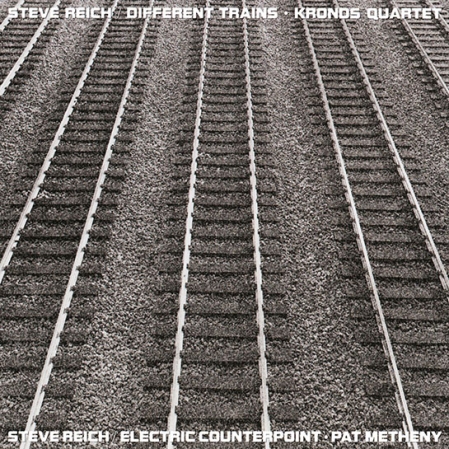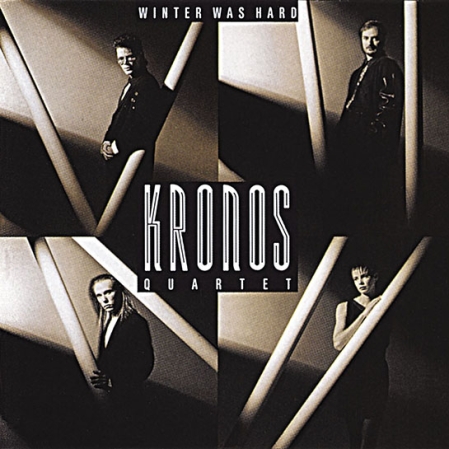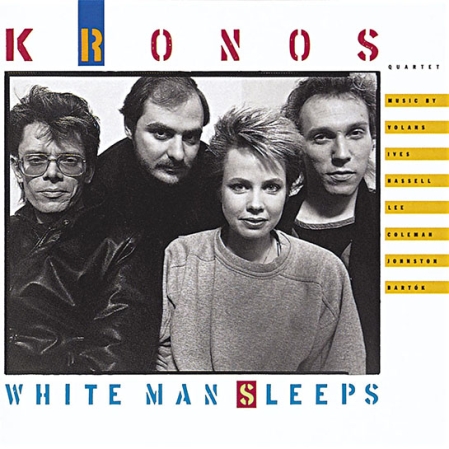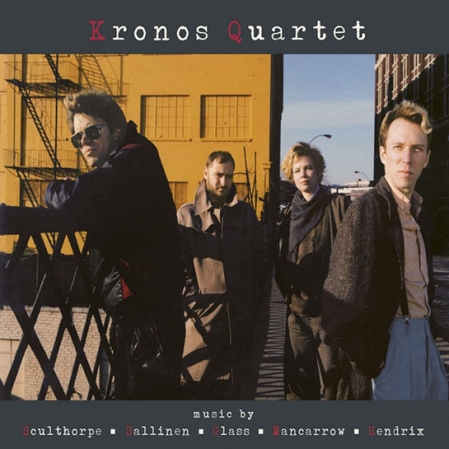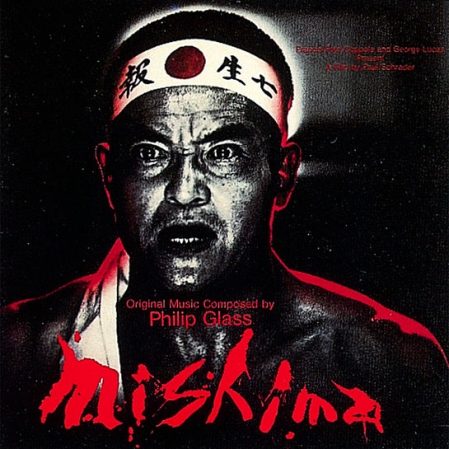Kronos takes a wild ride through 20th-century Mexican music, incorporating traditional and popular tunes, TV themes, even Esquivel’s space-age lounge sounds. The Quartet, says The Independent (UK), captures “a Mexican-style ethos of ingenuity, humor, spirituality, and infinite variety.”
On Nuevo, a collection of music from Mexico spanning nearly 100 years, Kronos Quartet presents a kaleidoscopic view of a music as diverse as the culture of the country itself. On each track, the group’s sound is transformed, through the collaborative efforts of co-producers Gustavo Santaolalla, the noted Argentinean musician and Rock en Español producer, longtime Kronos producer Judith Sherman, and Kronos Artistic Director David Harrington, as well as through arrangements by composers Osvaldo Golijov, Stephen Prutsman, and Ricardo Gallardo, whose efforts serve to reflect the individual spirit and character of each song.
Harrington notes that walking through Mexico City inspired the record. “I became fascinated with this sense of the layering of things there—of time, of music, of culture, of art … And how you’d walk down the street and never know what you’re going to hear next.”
The sonic landscape of Nuevo suggests the vastness of Mexican culture, a diverse array of experiences and ideas—intellectual, spiritual, and cultural. From the boom-boxes on the street corners to the incessant blaring of television sets, from the traditions of Son huasteco and corrido singing to the influence of Cuba on the culture and music, the sounds of Mexico are the sounds of a place where elements of popular culture and traditional music share a lively coexistence.
The tracks from Nuevo are culled from seemingly disparate sources ranging from "Mini Skirt," by the late Juan Garcia Esquivel, whose early experimentation with stereo caused him to be dubbed the "King of Space-Age Bachelor Pad Music"; to Chavosuite, which features music from three wildly popular Mexican television programs, the original Chespirito and two spin-offs, El Chapulín Colorado and El Chavo del Ocho; to an explosive Prutsman arrangement of Silvestre Revueltas’s "Sensemaya"; to Golijov’s "K´in Sventa Ch´ul Me´tik Kwadulupe" (Festival for the Holy Mother Guadalupe), a composition based on David Lewiston’s 1970’s recording from the Mexican state of Chiapas.
Nuevo also highlights a variety of unusual instruments, like the musical leaf as played by Carlos Garcia on Alberto Domínguez’s "Perfidia" and the organillo performance featured on Belisario García de Jesús and José Elizondo’s "Cuatro Milpas."
The album also features rock en Español supergroup Café Tacuba’s "12/12," a five-part sonic portrait of contemporary Mexico, named for the celebration of the Day of Our Lady of Guadalupe observed throughout Mexico on December 12. The piece is an aural tapestry weaving together not only the sounds of electric and acoustic instruments, but also traditional Mexican music and street sounds. It fittingly reflects the spirit of Nuevo, in its merging of widely different sounds and textures to create a unified whole.
Closing the album is a remix of Severiano Briseño’s "Sinaloense" by the DJ Plankton Man, formerly of Tijuana’s Nortec Collective.
PRODUCTION CREDITS
Produced by Gustavo Santaolalla, David Harrington, and Judith Sherman
Co-produced by Aníbal Kerpel
All tracks (except 1, 13, 14):
Recorded August 2000 and August 2001 at Skywalker Sound, Nicasio, CA
Engineered by Leslie Ann Jones
Assistant Engineer: Dann Thomson
ProTools recording and editing by Andre Zweers
Additional ProTools editing by Tom Luekens
Tracks 1, 6 and additional recording tracks 8, 13:
Recorded January 2001 at O’Henry Studios, Burbank, CA
Engineered by Joe Chiccarelli and Leslie Ann Jones
Assistant Engineer: Andy Ackland
ProTools recording and editing by Andre Zweers
Additional recording:
Track 4, Alejandro Flores and Efren Vargas recorded July 2001 at Studio “El Ensayo,” Satélite, Mexico, engineered by Aníbal Kerpel; assistant engineer: Edgar Hernández
Track 9, Organillo recorded July 2000 by Martín Hernández and Carlos Honc, Mexico City, textures by Sebastian Escofet
Tracks 9, 11, music coordinator, Mexico: Lynn Fainchtein
Track 10, voice by Luna Santaolalla; toys and percussion by Gustavo Santaolalla
Track 13, Café Tacuba recorded December 2000 at Studio “El Ensayo,” Satélite, Mexico, engineered by Emmanuel del Real and Luis Román; assistant engineer: Edgar Hernández; fireworks and bells recorded September 2001 by Zeta Audio, Zócalo, Mexico City, engineered by Carlos Honc
Additional recording and ProTools editing by Aníbal Kerpel at La Casa Studios, Los Angeles, CA
Mixed by Gustavo Santaolalla, Aníbal Kerpel, and David Harrington at La Casa Studios, Los Angeles, CA
Mastered by Robert C. Ludwig, Gateway Mastering Studios, Portland, ME
Luis Conte appears courtesy of Unitone Recordings. “El Sinaloense (Dance Mix)” remixed by Plankton Man courtesy of Palm Pictures LLC.
Arrangements: Osvaldo Golijov (1-4, 8, 12, 13), Stephen Prutsman (5, 6, 9), Ricardo Gallardo (10)
Design by Edoardo Chavarín
Executive Producer: Robert Hurwitz
79649
MUSICIANS
Kronos Quartet:
David Harrington, violin
John Sherba, violin
Hank Dutt, viola
Jennifer Culp, cello
Additional Musicians:
Luanne Warner, marimba (2, 7)
Alejandro Flores, vocals, violin (4)
Efrén Vargas, vocals (4)
Carlos Garcia, musical leaf (5)
Tambuco Percussion Ensemble: Ricardo Gallardo, Alfredo Bringas, Cláudia Oliveira, Raúl Tudón, percussion (6)
Rominko Patixtan Patixtan, arpa (harp) (7)
Pegro Lunes Tak’il Bek’et, vob (guitar) (7)
Carmen Gomez Oso, Xun Perez Hol Cotom, Rominko Mendez Xik, vocals (7)
Luis Conte, percussion (8)
Anonymous player, organillo (9)
Ariel Guzik, plasmaht (11)
Café Tacuba (13): Ritacantalagua, electric guitar; Emmanuel, programming, keyboards, jarana; Quique, jarana, concha, programming; Joselo, electric guitar; Alejandro Flores, violin, requinto





